What is the Jurong Lake District (JLD) about?
The Government has “high ambitions for the Jurong Lake District (JLD) to be a demonstrative site for sustainable living” in addition to being the largest commercial district outside Singapore’s city centre. Imagine working, living and playing in the district with convivial plazas, intimate public spaces, lush lakefront greenery and native fauna. Jurong Lake District is ideal for the next generation of businesses and talent to redesign the way we live, work, play and learn. Jurong Lake District presents an opportunity for companies to put down roots, create a brand-new campus and scale up easily.
Jurong Lake District (JLD) is a prominent and dynamic urban development in the western part of Singapore, known for its transformation into a thriving commercial, residential, and recreational hub. Nestled in the western region of Singapore, it encompasses the areas around Jurong Lake, including Jurong East and Jurong West.
As part of URA’s decentralisation strategy, Jurong Lake District (JLD) will be progressively developed into Singapore’s largest business district outside the city centre to cater to varied business needs. Jurong Lake District (JLD) is envisioned to be a model sustainability district with a goal to achieve net-zero emissions for new developments around 2045. It will have distinctive mixed-use developments with well-curated public spaces and amenities to serve the needs of the business and local communities as well as the general public.
Today, the area around the Jurong East MRT interchange station comprises office, retail and institutional uses. By 2028, a new Jurong Region Line station and an Integrated Transport Hub comprising offices, community spaces and retail amenities will be built next to Jurong East MRT interchange station. The Government will sustain the development momentum at Jurong Lake District (JLD), through the release of sites for sale, with the supply carefully paced to take into account economic and market conditions. The commercial hub will be extended progressively and seamlessly southwards into a new 120-hectare precinct via elevated pedestrian linkages and lushly planted streets. With more flexibility in zoning, the expanded Jurong Lake District (JLD) allows companies to experiment with new development concepts and innovative ways to integrate live, work and play in a green and car-lite precinct.
The Jurong Lake District (JLD) integrates:
1. Modern Urban Hub: Jurong Lake District (JLD) represents Singapore's vision of a modern urban center, replete with skyscrapers, state-of-the-art infrastructure, and world-class amenities serving as a testament to Singapore's commitment to sustainable urban planning and development.
2. Central Business District (CBD): Often referred to as the "Second CBD" after the traditional Central Business District in the city center, Jurong Lake District (JLD) is positioned to become a major business and commercial hub in Singapore. It aims to offer a balanced work-play-live environment, reducing the need for residents to commute to the city center.
3. Iconic Architecture: The skyline of Jurong Lake District (JLD) is characterized by impressive architectural landmarks. Notable buildings include the towering office complexes, luxurious condominiums, and the futuristic-looking Jurong Regional Library.
A new recreation corridor with active public spaces will link Jurong Town Hall to the existing Science Centre building. These distinctive landmark buildings will take on new uses, continue to anchor the district and create a strong sense of place in Jurong Lake District (JLD). They could become centres for co-working, innovation, museums, art studios, theatres, event grounds and playscapes with open spaces for the community to enjoy.
4. Green Spaces & waterbodies: Amidst the urban development, the Jurong Lake District (JLD) offers an abundance of green spaces and parks. The picturesque Jurong Lake Gardens is a centerpiece, providing a serene escape with lush gardens, waterfront promenades, and recreational facilities. It's an ideal place for outdoor activities, picnics, and enjoying nature.
Jurong Lake District (JLD) will have more than 100 hectares of park and greenery, and a 70-hectare lake with more than 10 kilometres of active waterfront. Throughout the district, streets are lined with canopy trees, forming green corridors that provide shade and act as nature ways for wildlife. A central green spine will link every development to the edge of Jurong Lake, drawing in parks and forests to cool the urban spaces. Water-sensitive urban design promotes climate resilience by channeling excess storm water from urban spaces into the surrounding Jurong Lake.
5. Residential Communities: The Jurong Lake District (JLD) features a mix of residential developments, offering a range of housing options to cater to diverse needs. These include condominiums, like JGateway and the upcoming J'den condo project by Capitaland and public housing (HDB flats).
6. Connectivity: The Jurong Lake District (JLD) is well-connected to the rest of Singapore. It is currently served by the North-South and East-West MRT lines, providing convenient access to various parts of the city. Additionally, road networks and public transportation options are robust, ensuring easy mobility. In the near future there will be two other lines serving this area: The Cross Island Line (CRL) and The Jurong Region Line (JRL).
The Cross Island Line (CRL) will run in an east–west direction from Changi to Jurong Industrial Estate via Loyang, Pasir Ris, Hougang, Ang Mo Kio, Sin Ming, Bukit Timah, Clementi and West Coast.
The Jurong Region Line (JRL) will significantly improve connectivity of the region and support the development of the Jurong area, which is set to be the largest commercial hub outside the Central Business District connecting key activity nodes in Jurong, such as the Jurong Industrial Estate, Jurong Innovation District and the Nanyang Technological University (NTU).
7. Educational Institutions: The district is home to several educational institutions, including the National University of Singapore (NUS) Kent Ridge campus and Nanyang Technological University (NTU). This concentration of academic institutions contributes to the district's vibrancy.
8. Retail and Entertainment: Jurong Lake District (JLD) boasts a wide array of shopping centers, entertainment venues, and dining options. Westgate, IMM, and JEM are prominent malls where residents and visitors can shop, dine, and enjoy recreational activities.
9. Culture and Arts: The Jurong Lake District (JLD) features cultural attractions like the Singapore Chinese Garden, the Science Centre Singapore, etc. These venues offer enriching experiences and educational opportunities for residents and tourists alike.
10. Future Developments: The transformation of Jurong Lake District (JLD) is an ongoing process, with plans for continued expansion and development. This includes the Jurong Innovation District (JID), which will focus on research and innovation, further solidifying Jurong's status as a hub for technology and creativity. Jurong Innovation District is home to a manufacturing ecosystem of R&D centres, technology partners, training providers and Factories of the Future. Which means you can develop your latest prototype, experiment with ideas, and even kick-start production and distribution, all in one place.
What is "Singapore 2.0"?
"Singapore 2.0" is a visionary concept that represents the island nation's ongoing efforts to evolve, adapt, and position itself for a dynamic and sustainable future. It reflects Singapore's commitment to innovation, economic transformation, and social progress.
How is "Singapore 2.0" exemplified by Jurong Lake District (JLD)?
1. Digital Transformation:
The Jurong Lake District (JLD) will harness the power of technology to become a Smart City. Initiatives include widespread adoption of digital solutions, the development of a smart Jurong Gateway city network with advanced use of data analytics to improve public services and urban planning within Jurong Lake District (JLD).
2. Sustainable Living:
Sustainability is at the core of Singapore 2.0. The Singapore government will be investing billions in green technologies, renewable energy sources and sustainable urban planning to mitigate climate change and reduce its carbon footprint in the development of Jurong Lake District (JLD). The government works together with reputable developers like Capitaland to achieve Net Zero carbon emissions for Jurong Lake District (JLD) by 2050, as part of Singapore's wider sustainability targets, which include accelerating Singapore's transition to a low-carbon townships and cities, improving water conservation and resilience, and promoting a circular economy.
3. Innovation Ecosystem:
The International Business Park (IBP) of Jurong Lake District (JLD) aims to propel Singapore to the forefront of becoming a global innovation hub, fostering entrepreneurship, supporting startups, and attracting research and development activities in sectors like biotech, fintech, and artificial intelligence.
The International Business Park (IBP) has established itself as an attractive site for corporations to set up their regional headquarters, innovation centres and other operations. It is situated next to the upcoming Jurong Lake District – widely labelled as Singapore’s second CBD – comprising a commercial hub with a vibrant mix of office, retail, residential, hotel and entertainment and a leisure precinct Lakeside. The thriving business park is also strategically located near Jurong Innovation District, known as the future advanced manufacturing hub. Key companies that call the International Business Park (IBP) home include Acer, JGC Singapore, Creative Technology, ThyssenKrupp, Evonik, Johnson Control etc.
4. Education and Skills Development:
Preparing the workforce for the future is a priority. The Devan Nair Institute for Employment and Employability (e2i) is a training institute at Jurong Gateway in Jurong Lake District (JLD) that focuses on providing education and training to enhance the employability of individuals through its various comprehensive lifelong learning initiatives to upskill and reskill workers. It is named after Devan Nair, a former President of Singapore. e2i offers a wide range of courses and programs designed to equip individuals with the skills and knowledge they need to succeed in the job market. These programs cover various industries and sectors, including healthcare, hospitality, manufacturing, and more.
In addition to training and education, e2i also provides career advisory services and job placement assistance to help individuals find suitable employment opportunities. They work closely with employers and industry partners to ensure that their training programs align with the needs of the job market. The institute plays a crucial role in Singapore's efforts to enhance the skills and employability of its workforce, contributing to the nation's economic development and growth.
5. Healthcare Advancements:
Singapore will continue to invest in healthcare infrastructure and research striving to be a leader in medical innovation through Ng Teng Fong General Hospital - a prominent healthcare facility located in Singapore's Jurong Lake District (JLD). Ng Teng Fong General Hospital is part of the National University Health System (NUHS) and is situated in the Jurong East area. The Ng Teng Fong General Hospital is known for providing a wide range of medical services and specialties to the community, including General Medicine, Surgery, Obstetrics and Gynecology, Pediatrics, Orthopedics, Cardiology, Oncology, Radiology, Neurology, Urology and more.
The Ng Teng Fong General Hospital is equipped with modern medical technology and facilities to offer comprehensive healthcare services to patients. It also has a strong focus on research and education, collaborating with the National University of Singapore (NUS) to train future healthcare professionals to integrate telemedicine, precision medicine, and advanced healthcare technologies into the healthcare system.
6. Green Spaces:
The Jurong Lake District (JLD) is enhanced with large green spaces, parks, waterbodies and recreational areas. Singapore 2.0 envisions a city where nature and urban living co-exist harmoniously, promoting well-being and quality of life which is exemplified by Jurong Lake District (JLD) with the largest national garden in the heartlands - The 90-hectare Jurong Lake Gardens which comprises Lakeside Garden (formerly Jurong Lake Gardens West), Chinese and Japanese Gardens (formerly Jurong Lake Gardens Central), Garden Promenade (formerly Jurong Lake Gardens East), Therapeutic Garden, Heron Island, etc.
7. Urban Planning and Housing:
Housing options are diversified to meet the evolving needs of the population. Jurong and Jurong Lake District (JLD) in particular, is undergoing significant development to become a vibrant, sustainable district.
8. Cultural and Creative Arts:
Singapore is nurturing its cultural and creative industries. Investments in arts infrastructure, cultural events, and creative talent are part of the vision for a more culturally vibrant nation and will be seen in Jurong Lake District (JLD) e.g. Singapore Science Centre that integrates science and art and artistic events held at the Jurong Regional Library.
9. Global Connectivity:
Singapore's strategic location as a global trade and transportation hub is reinforced through infrastructure projects like Changi Airport's Terminal 5 and the Tuas Mega Port as well as the Jurong Lake District (JLD).
10. Social Inclusivity:
"Singapore 2.0" emphasizes social inclusivity ensuring a high quality of life for all residents. Residents staying in Jurong and Jurong Lake District (JLD) will get to enjoy unparalleled convenience with MRT stations within 10 minutes walk from their homes, car lite environment surrounded by amenities, e.g. shopping malls, hospitals, library, attractions, nature, etc
This "Singapore 2.0" vision reflects Singapore's determination to remain at the forefront of economic, technological, and social progress in an ever-changing world. "Singapore 2.0" embodies the nation's resilience and adaptability, ensuring that Singapore remains a beacon of innovation and prosperity on the global stage.
"The Singapore government will be focusing on the Jurong Lake District (JLD)'s development in the next two decades with billions of dollars pumped into the area to make the Jurong Lake District (JLD) a perfect example of a "Singapore 2.0" visionary city. The government will be planning to sell of GLS sites including white land parcel sites progressively within the district to transform the Jurong Lake District (JLD) into a very desirable city for Singaporeans to work, live and play." said real estate professional Kiwi Lim from Huttons Asia who is appointed to market the upcoming J'den integrated condo project by Capitaland at the site of JCube which will be demolished soon.
6.8 ha GLS white site will be released for sale to a master developer
This year, a 6.8 hectare white site was released for sale by URA in June 2023 for tender to a master developer comprising three plots of land linking the Jurong East MRT interchange station and the future Jurong Lake District station of the Cross Island Line. According to URA, the intention is for a single developer to comprehensively master plan the site and use district-level urban solutions (such as a district cooling system) that will be integrated within the mixed-use development, which will propel Jurong Lake District (JLD) towards the next phase of transformation and an achievement for Singapore, as it spurs new economic activities and creates more jobs.
The proposed integrated development on the white site at Jurong Lake District will be progressively developed over the next five to 10 years to cater to market demand. The successful tenderer will be required to build at least 70,000 sqm (753,480 sq ft) GFA of complementary uses such as retail, hotel or community uses and 600 private housing units as part of the first phase of the development but will have some flexibility to phase out the remaining supply according to market demand.
The government has opted for a master developer approach to developing the site which usually entails a two-envelope tender system where design and concept, in addition to the price tendered, will be used in its sale. Real estate analyst Kiwi Lim believe the developer who wins the tender will have to work closely hand-in-hand with the government's plan to adopt a broad planning approach for Jurong Lake District where flexi-use sites will be interspersed with business park uses allowing companies to locate all their activities and teams in one place. Large sites that will be offered for bidding by the government will give developers the flexibility to create scalable campuses tailored to business needs at competitive rents.
Residents in the 600 units of the first phase of the integrated development on the GLS white site will enjoy proximity to amenities from shopping malls, a regional library, Jurong East MRT interchange station and bus interchange as well as attractions such as Jurong Lake Gardens, the new Science Centre and other new tourist developments.
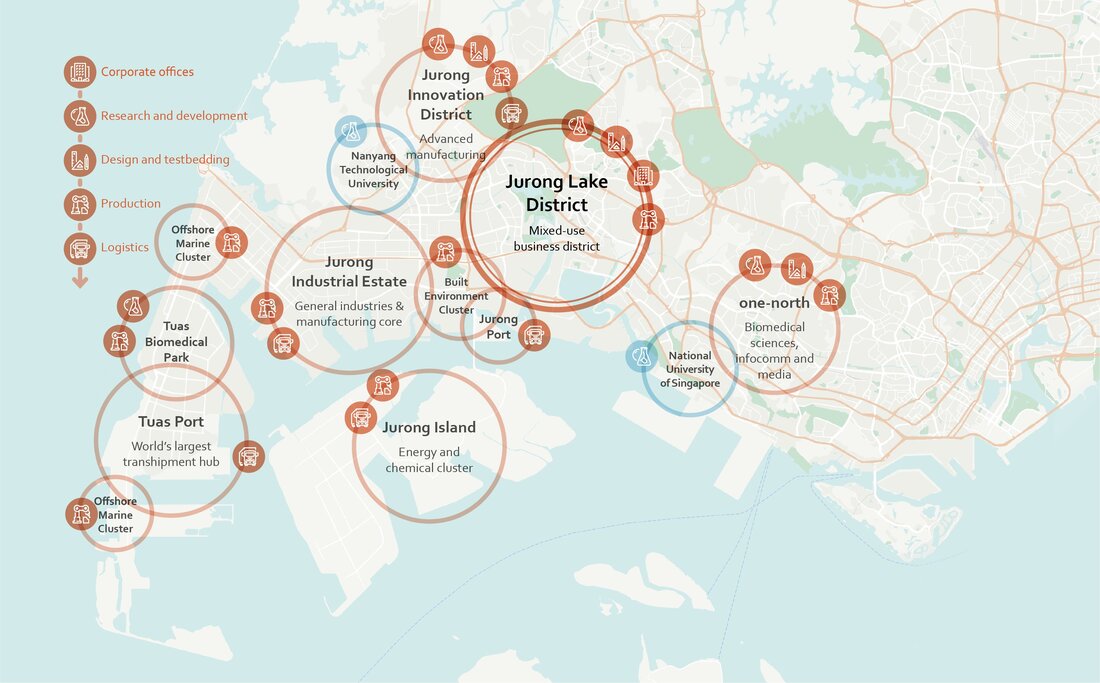
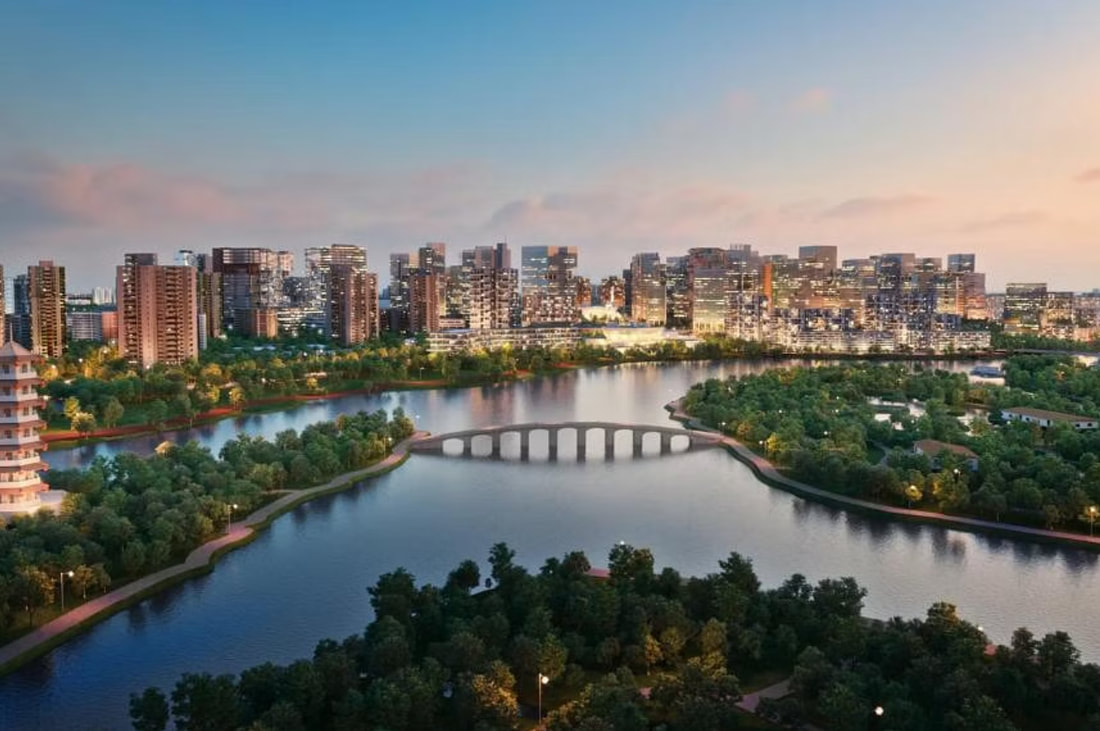

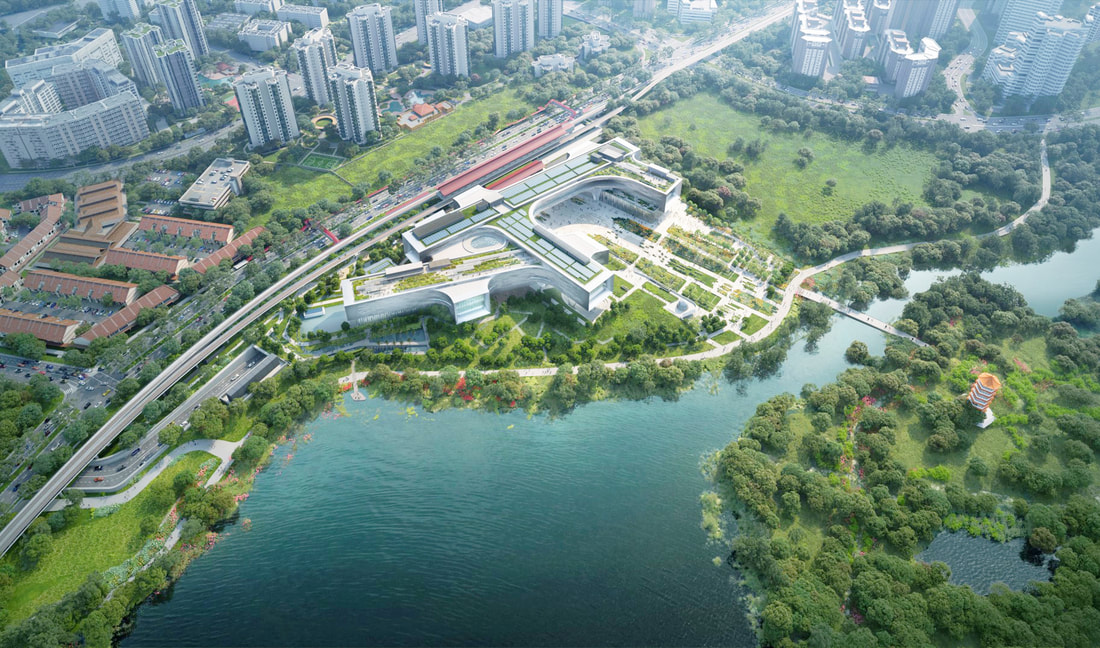
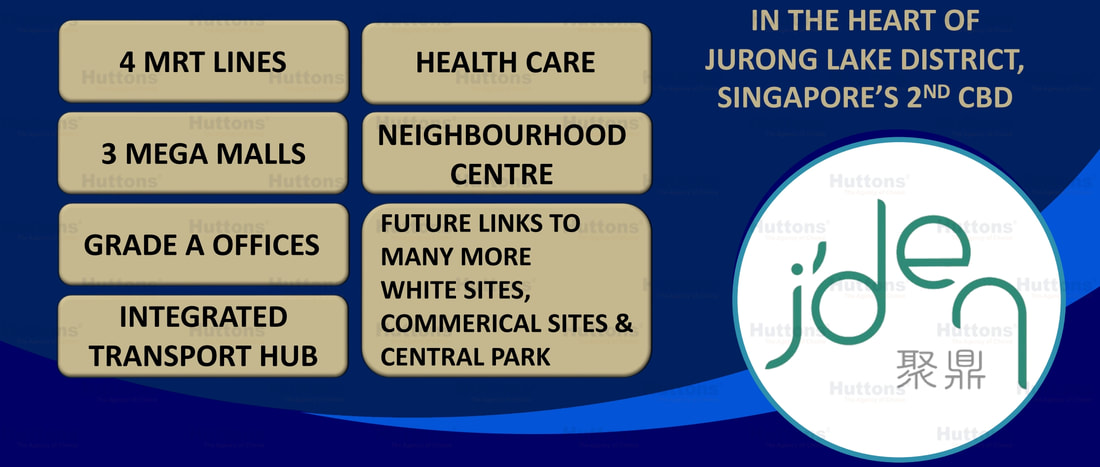
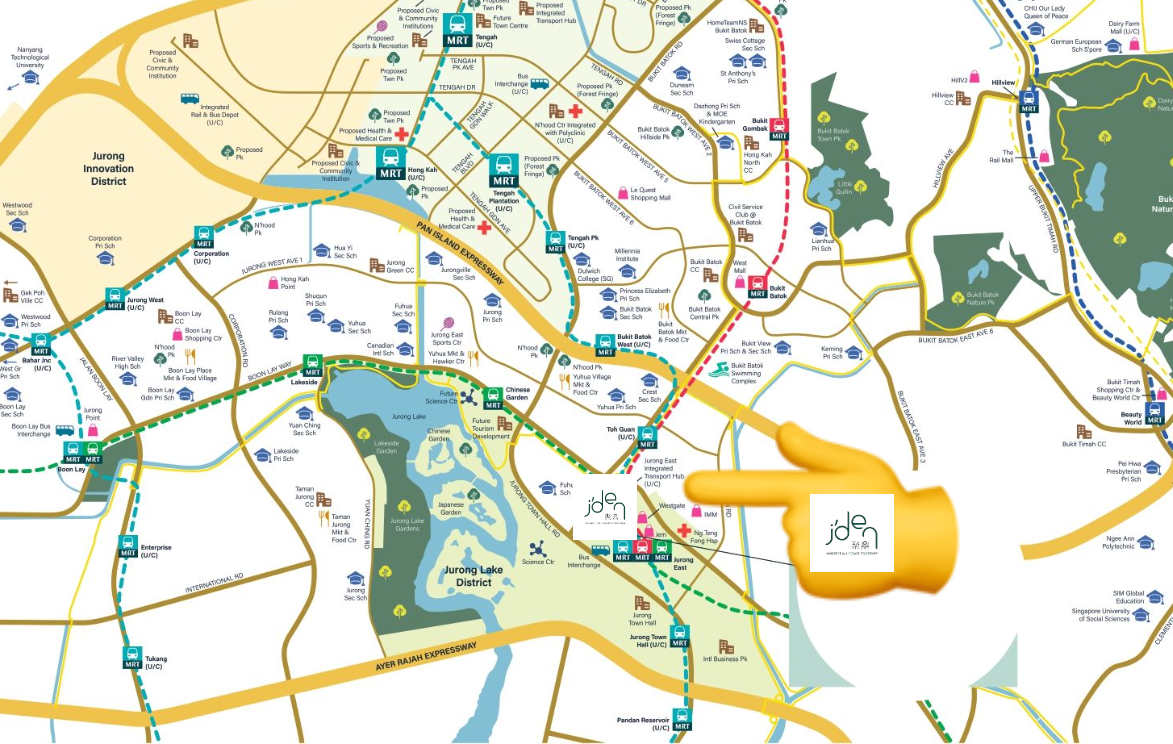
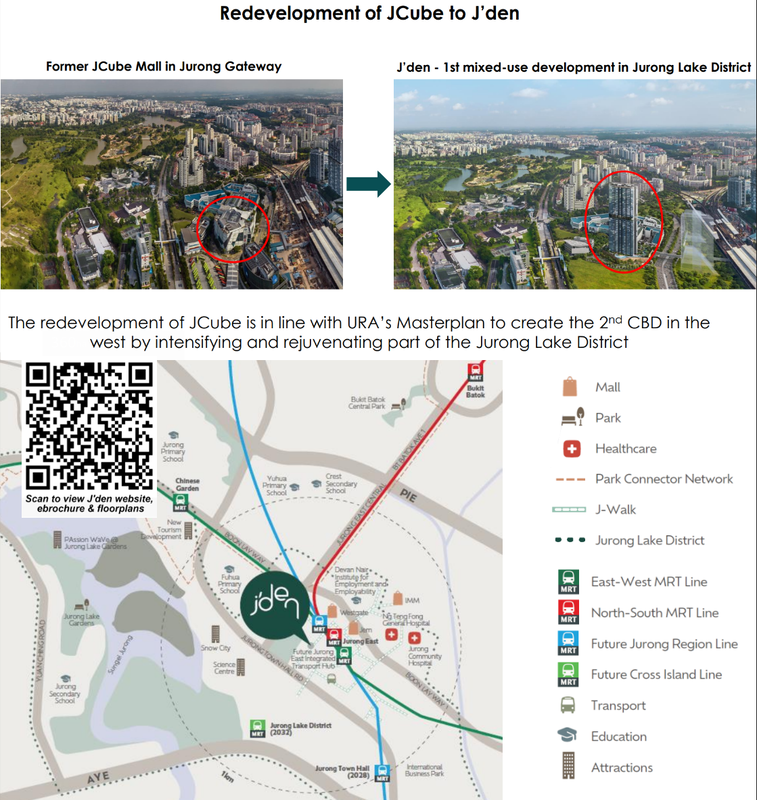
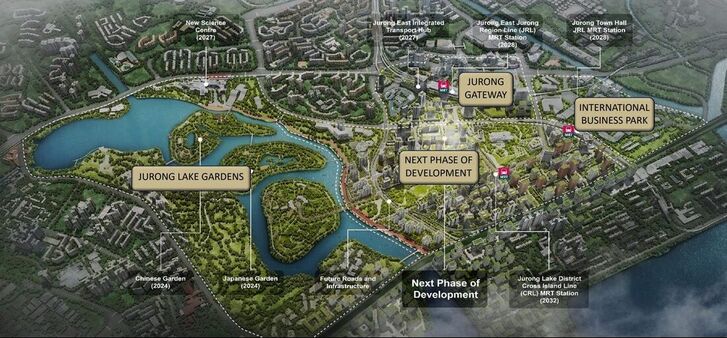
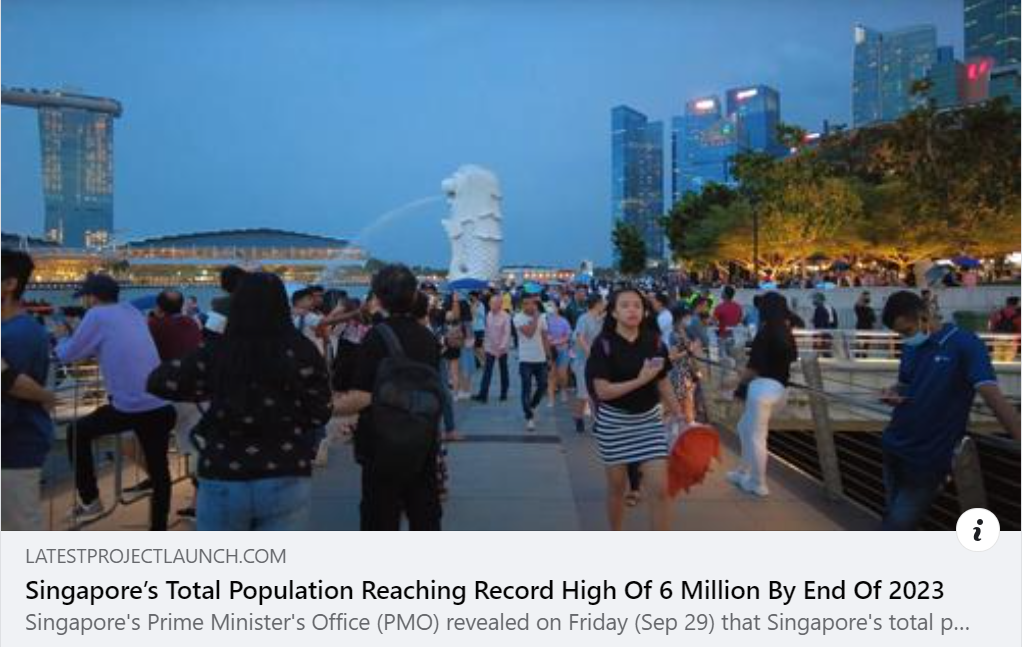
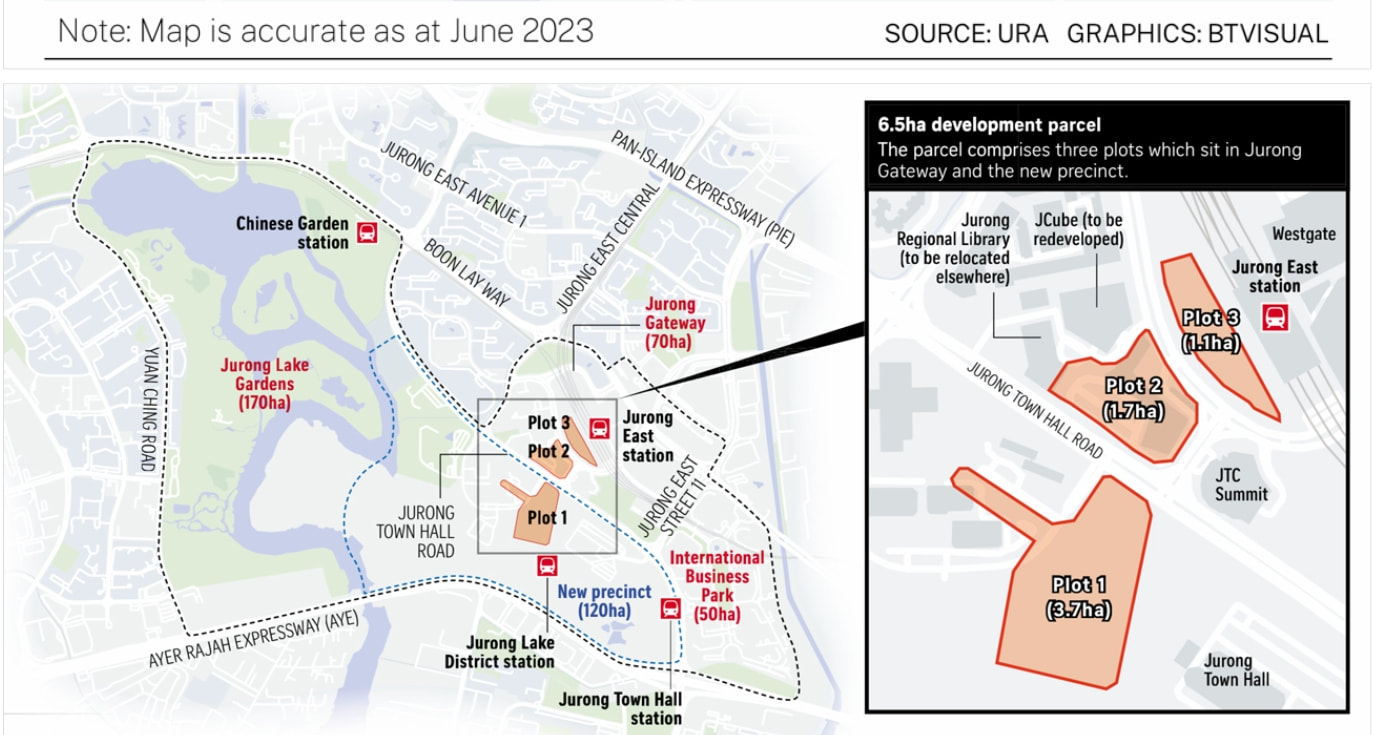
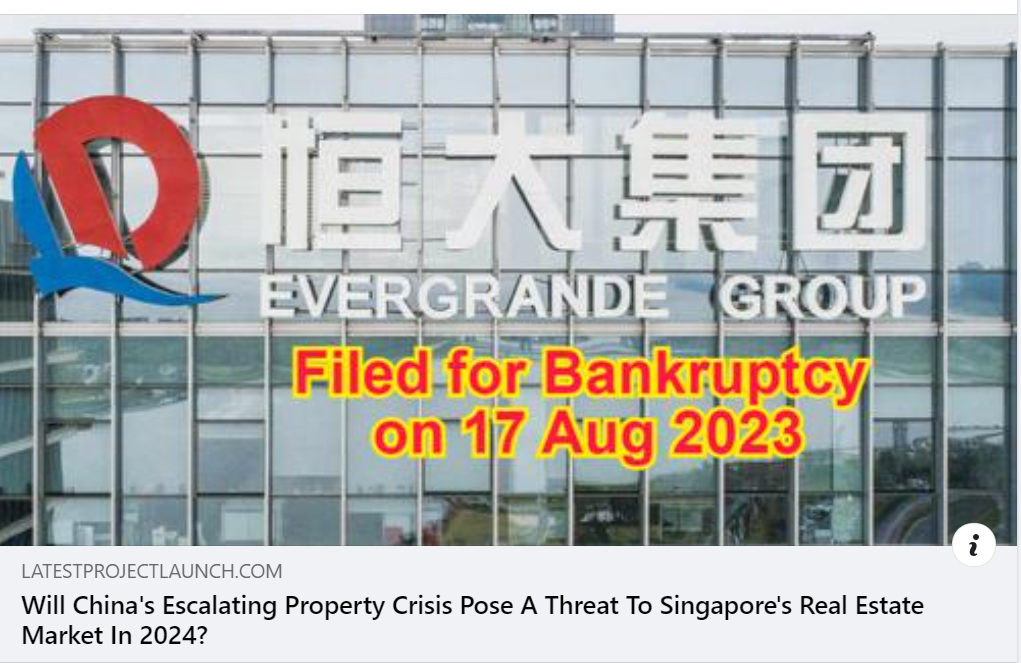



 RSS Feed
RSS Feed
